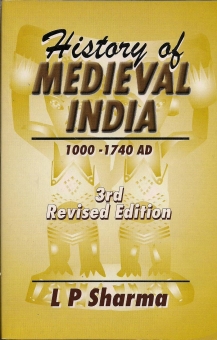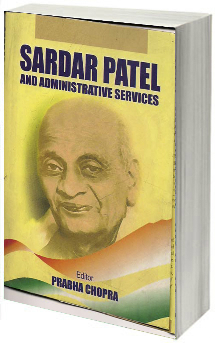The Raj Syndrome : a Study In Imperial Perceptions
By Suhash Chakravarty(Author)
This book seeks to appreciate the trends of imperial perceptions of India and her institutions. By perception I mean that particular action of mind that refers to its sensation to external objects as its cause. Distinct from conception, imagination, judgement and inference, per- ception denotes the faculty that takes note of the sensible and quasi-sensible objects. It involves taking cognizance of the objects in general and recognition of their moral and aesthetic qualities. Throughout the essay I have endeavoured to approximate this broad appreciation of the term. There is no claim of finality in it. Much of what could have been brought within the ambit of the work has been left out. It is but an introductory assessment of imperial sensibility on lines that might discomfort casual readers owing to the work’s apparent indefiniteness. I should think that readers would do well to approach the book without succumbing to the lures of colonial scholarship on imperial perceptions. Thematically, the drift and propensities of imperial perceptions etched out here are valid for the whole period of Raj which was initiated with the assumption of authority by the British crown from the East India Company. The Delhi durbar of 1877 signified the frank and unambiguous demonstration by the Raj of its determination to hold India. The book attempts to capture the broad parameters and intricate detours of imperial perceptions of India especially since the over-confident days of the adolescent Raj in the mid-seventies of the nineteenth century. Some might feel disconcerted by the nature of the source material used here. But then, perception and sensibility are by their very nature multi-dimensional. Some others might object to the irreve- rential attitude of the author towards the ‘prophets’ of human understandings and feel irked by the casual treatment of number of laymen and missionaries and their liberal positions. It may not be amiss here to state that I believe that matters and ideas have a dialectical relationship and both in social and intellectual movements there are the dominant strands and the subsidiary forces. In the final analysis, the dominant trends subsume minor dissenting underpinnings of perceptions. The Raj was the central piece of the British empire. Its influence in imperial strategy was enormous. Economic power, military authority and diplomatic ascendancy of the empire were sustained by the centrality of the Raj in British imperial psychology. The Raj was almost a national obse- ssion in Britain. Its demise caused an equally compelling neurosis. India deposited in British national consciousness layers of racial silt. British sensibility with regard to the Raj, therefore, displayed an arrogant and an authoritarian prog- ramme which was quite different from the fraternal fellow-feelings which were displayed towards Australia, Canada, New Zealand, South Africa and Rhodesia. For nearly a century, the Raj continued to create its myths and legends. It sparked off its various imperial stereotypes; fashioned the objects of its ‘investigative modalities’; tinted the imperial looking glass; ensued in official and public debates different strategic discussions; encouraged and app- lauded soldiers, administrators, publicists and missionaries; animated its extrovert troubadours and comforted its patient and plodding reconciliers. The experience of the Raj was put in practice by administrators and soldiers in Nigeria, Ghana, Sudan, Egypt and Rhodesia alike. It offered a blue-print to European powers elsewhere in their mission abroad. Between the definite perceptions of the Raj of itself and the remarkable flamboyance of imperial braggadocio on the one hand and the consistent line of thought about the ‘contem- ptible’ India and its so called inevitable failure to graduate in the school of self-government on the other, imperial sensibility gathered a wide and an influential audience. It was not merely an upper class affair. Even the British working class was attracted by the seductive prospects of a colonial overclass. If Rudyard Kipling and Maud Diver stood at the one end of the imperial spectrum signifying unflinching imperial will and determination, E. M. Forster and Edward Thompson stood at the other end of the same world-view upholding various sentiments to buttress the imperial logic. If the extravagant Round Table Group inherited in full measure the self-righteous authoritarianism of John Strachey and James Fitzjames Stephen, the Fellow- ship of reconciliation and various sympathizers of an amorphous British Left of the 1930s and Forties sought to explore, along an uncertain path across a racial chasm, a humane partnership between the ruler and the ruled within a haughty empire. Despite tactical differences, there was a strategic con- sensus that upheld imperial sensibility. That strategic accord was sustained all through our period notwithstanding the insistence of informed scholars that liberal England stood mortally scared in front of its own tormented conscience. Sympathy for the Raj was by no means universal and there were many in Britain who actively opposed it. But at no times could they develop an organized body of thought inspiring concerted actions against the powerful Raj Synd- rome. The primary object of the work is to weave a pattern and discover a meaning in imperial sensibility.




